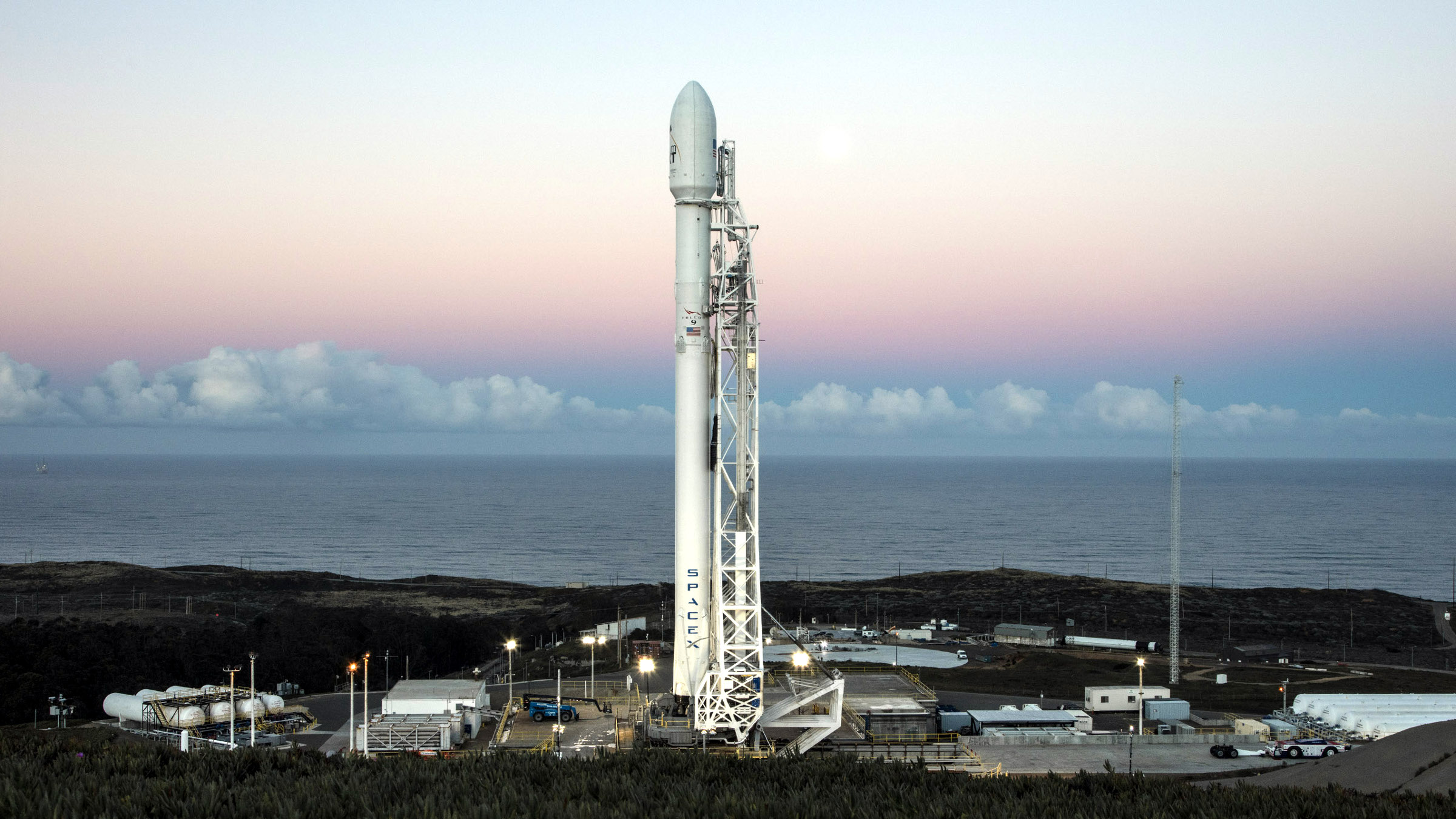


Following the successful completion of a test that saw part of SpaceX's Starship return to its launch pad, the company's goal of creating a fully reusable and quickly deployable rocket has taken a major leap forward. BBC's science correspondent, Pallab Ghosh, delves into the technical challenges of this feat and addresses concerns about the environmental impact of such a rocket. This development comes after a public dispute between Elon Musk and the Federal Aviation Administration over permits and environmental concerns.
SpaceX's Starship: A Leap Towards Reusable Rockets
SpaceX, the aerospace company founded by Elon Musk, has made significant progress towards its goal of developing a fully reusable and rapidly deployable rocket system. This milestone was achieved recently with the successful return of part of the Starship to its launch pad, following a test flight.
Background
SpaceX's Starship is a massive reusable spacecraft designed to carry both crew and cargo into space. It consists of a first stage called the Super Heavy booster and a second stage called the Starship itself. The Super Heavy is responsible for lifting the Starship into orbit, while the Starship serves as the primary vehicle for travel beyond Earth's atmosphere.
The development of Starship is crucial for SpaceX's plans to establish a permanent human presence on Mars and enable interplanetary travel. By creating a fully reusable rocket, SpaceX aims to drastically reduce the cost of space travel and make it more accessible.
Technical Challenges
Developing a fully reusable rocket system is no easy task and presents numerous technical challenges. One of the primary obstacles is the ability to withstand the extreme heat and pressures encountered during re-entry into Earth's atmosphere. SpaceX has overcome this hurdle through a combination of advanced heat shielding and precise control during descent.
Another challenge lies in the separation and recovery of the Super Heavy booster and Starship. To achieve rapid reusability, both stages must be able to return safely to the launch pad for refurbishment. SpaceX has employed a range of innovative techniques, including onboard guidance systems and precise landing maneuvers, to enable this separation and recovery process.
Environmental Concerns
The development and operation of Starship have raised concerns about its potential environmental impact. Critics have expressed worry that the rocket's methane-based fuel could contribute to greenhouse gas emissions. SpaceX has addressed these concerns by emphasizing the efficiency of their propulsion system and their plans to transition to renewable energy sources in the future.
Dispute with Federal Aviation Administration
In February 2022, SpaceX and the Federal Aviation Administration (FAA) engaged in a public dispute over permits and environmental concerns related to the Starship launch site in Boca Chica, Texas. The FAA raised concerns about the project's potential impact on local wildlife and the environment. After extensive discussions and negotiations, SpaceX eventually received approval for the launch site in June 2022.
Top 5 FAQs

A remote monitoring camera operated by the US Geological Survey captured stunning visuals of the recent volcanic eruption at Hawaii's Kilauea Volcano. The footage showed lava fountains up to 100 feet high and the raw power of nature as the lava eventually engulfed the camera. This eruption, known as Episode 38, was the latest in a series of eruptions that have been occurring since December last year. However, according to USGS, another episode could take place in the near future.

Indian Prime Minister Narendra Modi virtually inaugurated Skyroot Aerospace's new Infinity Campus in Hyderabad and unveiled their first orbital launch vehicle, the Vikram-I. During the event, PM Modi praised India's advancements in space technology and spoke about the importance of private companies like Skyroot in driving innovation in the space sector. The Infinity Campus, equipped with state-of-the-art facilities, has the capacity to produce one rocket per month, marking a significant milestone in India's private space manufacturing capability. Skyroot Aerospace, founded by former ISRO engineers, has quickly become a prominent player in India's growing space industry, with the successful launch of Vikram-S, the country's first privately built sub-orbital rocket.

We all experience changes in our mood, whether it's feeling happy and content or irritated and moody. But what are the underlying factors that contribute to these changes? This article from Medindia explores the top 10 things that can affect our mood, from physical health to environmental factors. It also provides tips on how to avoid these mood-altering triggers and maintain a positive state of mind. With a focus on promoting overall well-being, Medindia's policies align with the UN's Sustainable Development Goals, making it a reliable source of information for health and wellness.

A recent report by Public Health Scotland has shown a steep increase in flu cases and hospitalizations in Scotland. The numbers have more than doubled from the previous week, with a higher intensity observed in younger age groups. Experts are warning of a long flu season and a new variant of the illness that is spreading more easily. Health Secretary Neil Gray has assured the public that there are enough doses of flu vaccine available in the country.

The observation of National Pollution Control Day on 2 December serves as a timely reminder of India's struggle with escalating pollution levels. The recent years have seen a sharp increase in toxic particles and hazardous emissions, causing severe health issues and environmental damage. The ongoing pollution emergency calls for more stringent regulations, better urban planning, and increased public engagement to mitigate the crisis.

As World AIDS Day approaches, conversations around HIV prevention in India are becoming more open and informed. In particular, there is growing interest in PrEP (pre-exposure prophylaxis), a medicine that offers strong protection against HIV when used correctly. With rising awareness and more accessible sexual-health services, doctors are seeing a steady rise in patients asking about PrEP as a proactive health choice. This signals a shift towards informed prevention and a stigma-free dialogue surrounding HIV.

ISRO has been making continuous efforts to establish contact with the Vikram lander and Pragyan rover, which were put into sleep mode earlier this month, ahead of the lunar night. However, the prolonged spell of cold weather conditions, reaching up to -150 degrees Celsius, has made it difficult for them to wake up. With the sunrise on the Moon's south polar region and their solar panels believed to be optimally charged now, ISRO is hoping to revive the lander and rover and continue with their experiments and studies. The latest update from ISRO is that the plan to reactivate them has been delayed to September 23 due to the extreme lunar weather conditions.

Monsoon season may bring romantic vibes, but it's also a nightmare for contact lens wearers. Rainwater contains bacteria and pollutants that can cause eye infections, especially when wearing contact lenses. Ophthalmologists recommend using glasses instead and practicing good hygiene to avoid irritation and infection.

India's first human spaceflight mission, Gaganyaan, is one step closer to reality as ISRO successfully tested the main parachutes for the mission's Crew Module. The test, conducted at the Babina Field Firing Range in Uttar Pradesh, is part of the qualification process for the Gaganyaan parachute system. The system, which includes 10 parachutes of different types, is designed to ensure the safe and stable descent of astronauts returning to Earth. This milestone test marks a crucial step forward for India's ambitious space exploration goals.

As World Pneumonia Day is observed on November 12, experts are drawing attention to the dangerous link between air pollution and respiratory illnesses. In India, the post-Diwali smog adds to the already high levels of pollution, increasing the risk of pneumonia, particularly among vulnerable populations. While outdoor air pollution is often blamed, experts emphasize that poor indoor air quality also plays a significant role in triggering and worsening respiratory infections. Health professionals are urging for better air quality regulations and precautions to prevent this deadly connection between pollution and pneumonia.